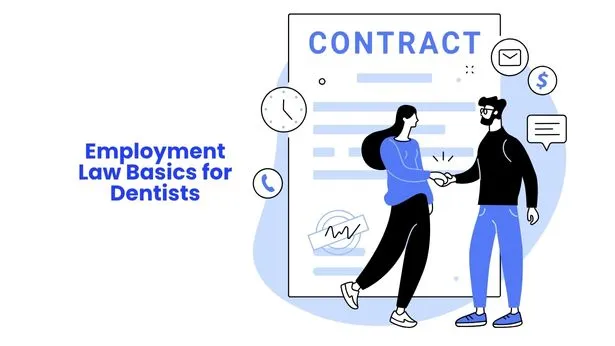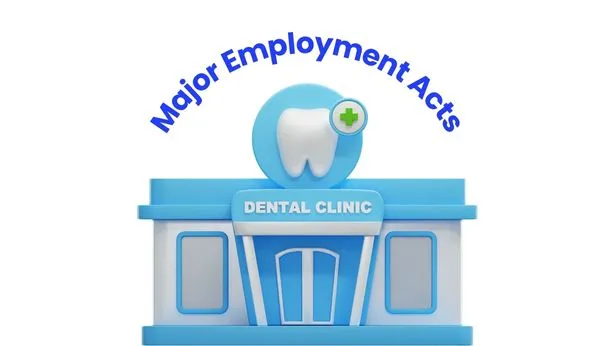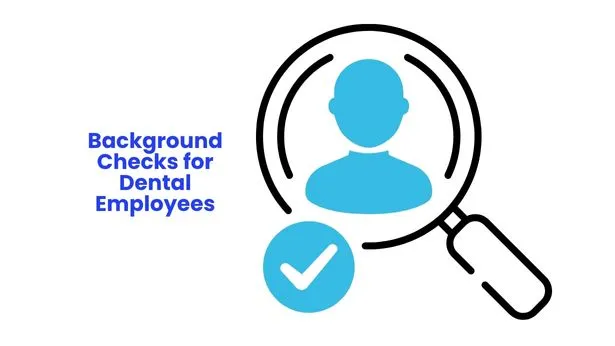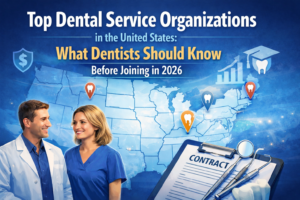Legal Requirements for Hiring Dental Staff
When building a dental staff, it is important to learn the legal requirements for hiring dental staff to prevent future liabilities, guarantee correct compliance, and create a reliable clinical environment. Dental recruitment extends past resume screening and interviewing the applicants; it is the process of navigating an area of employment legislation, background screening, licensure requirements, and workplace laws associated with the healthcare industry.Understanding Dental Hiring Laws and Regulations

All dental clinics have to adhere to dental hiring laws and regulations that cover employee qualifications, licensure, workplace rights, and standards of the profession. These regulations differ according to geography but commonly entail:
1. License verification and credentials via state boards of dentistry.
2. Compliance with Equal Employment Opportunity (EEO) laws.
3. Compliance with the Americans with Disabilities Act (ADA).
4. Compliance with OSHA standards for a safe work environment.
Ignoring these rules can result in severe penalties, litigation, or the loss of your practice license. Keeping yourself informed of federal and state-specific dental employee laws is crucial.
Dental Hiring Compliance Checklist
A compliance checklist for dental hiring must have tools to guarantee that your hiring practice is within all the law and ethical requirements. The following is a simplified copy of an exhaustive checklist:
1. Job Descriptions – Define the job, duties, qualifications needed, and licensure.
2. Advertising the Position – Advertise positions according to non-discriminatory practices.
3. Interview Process – Pose only lawful questions; do not ask about age, religion, race, or handicap.
4. Licensing Verification – Verify the candidate’s dental license or certification validity.
5. Background Checks – Perform comprehensive background checks for dental staff, such as criminal record, work history, and education.
6. Offer Letters and Contracts – Offer complete employment contracts with terms, salary, benefits, and conditions of termination.
7. Onboarding Documents – Capture I-9, W-4, tax forms, and have OSHA and HIPAA training fulfilled.
8. Policy Training – Take new hires through your practice’s compliance, confidentiality, and workplace behavior policies.
By using a formal compliance checklist for dental hire, you lower the chance of litigation and provide an open process for both the employer and the employee.
Also Read: How to Become a Dentist in the U.S.
Major Employment Acts for Dental Clinics

Some of the major legal factors are:
1. Fair Labor Standards Act (FLSA): Regulates minimum pay, overtime wages, and working hours.2. Occupational Safety and Health Act (OSHA): Mandates personal practices to keep their workplace safe.
3. Family and Medical Leave Act (FMLA): Entitles employees to unpaid leave for certain medical and family purposes.
4. Health Insurance Portability and Accountability Act (HIPAA): Shields patient and employee privacy rights.
5. Title VII of the Civil Rights Act: Bars employment discrimination on the basis of race, color, religion, sex, or national origin.
Adhering to these employment regulations for dental clinics safeguards the employer as well as employees against legal disputes and fosters a positive work environment.
How to Legally Hire Dental Hygienists and Assistants?
It is essential to know how to legally hire dental hygienists and assistants, particularly because they need different amounts of training and certification.Important Steps: 1. Verify Credentials: Make sure candidates are registered or certified with the state’s dental board or regulating agency.
2. Check Scope of Practice: Understand what each position can legally do under state dental practice acts.
3. Conduct Interviews Legally: Refrain from discriminatory or intrusive questions and remain job-skills relevant.
4. Employment Agreements: Offer transparent contracts with details of the scope of tasks, supervision, and continuing education.
5. Schedule Reviews and Audits: Periodically review employee performance and credentials to ensure compliance.
By closely monitoring legal and procedural procedures in how to legally hire dental assistants and hygienists, practices can reduce risks and encourage professional development.
Importance of Background Checks for Dental Employees

Conducting background checks for dental employees is not merely a legal measure but an important part of protecting your clinic and patient trust.
Areas to Check:
1. Criminal Records: Verify that the candidate has no criminal record that would affect his or her working reputation.
2. Professional Misconduct: Check any previous violations, malpractice suits, or suspensions of license.
3. Drug Testing: There are some states that require drug testing for healthcare professionals.
4. Education and Credential Verification: Verify that qualifications and certifications are valid and accredited.
Overlooking background checks for dental staff can result in malpractice lawsuits, licensure problems, and even criminal exposures for your practice.
Being Current on Developments in Recruitment Regulations
Dental legislation and recruitment practices do not remain unchanged. As the medical field progresses, so do the dental recruitment laws and regulations. Changes may arise from:
Labor law updates.
Movement in healthcare compliance norms.
New OSHA or HIPAA regulations.
Changing licensure rules and renewal procedures.
Being compliant requires:
Subscribe to dental law newsletters.
Membership in professional associations (such as ADA or local dental boards).
Employment by a healthcare-oriented employment attorney.
Continuously review and upgrade your hiring forms and practices.
Being informed guarantees that your clinic remains ethical and free from expensive legal mistakes.
Final Discussion on Hiring Dental Professional
Hiring the appropriate dental professionals means far more than reviewing resumes—it’s about recognizing and implementing the legal requirements of hiring dental staff to create a compliant, safe, and efficient dental practice. Through using dental hiring laws and regulations, adhering to a strong compliance checklist of dental hiring, and acknowledging all employment laws for dental offices, you establish an ethical and professional atmosphere.
Don’t neglect the importance of background checks for dental staff, and ensure that you understand completely how to lawfully recruit dental assistants and hygienists. A bit of legal caution now prevents your practice from significant problems down the road.
Ensure every hire is legally sound and professionally aligned. Stay compliant with hiring laws by partnering with a trusted dental placement agency that understands the nuances of dental recruitment agency. Connect with Hire Smiles today for expert hiring support.
FAQs on Dental Hiring Laws and Regulations
Q1. What are the major legal requirements for employing dental personnel?
Dental practices need to verify licensure, adhere to labor regulations, perform background checks, and abide by anti-discrimination and safety laws.
Q2. Which legislation is used when employing dental professionals in the U.S.?
Major legislations include the Fair Labor Standards Act (FLSA), Equal Employment Opportunity (EEO) legislations, OSHA, HIPAA, and dental practice acts in states.
Q3. How do dental practices verify credentials and licenses?
Employers must inquire with state dental boards or regulatory bodies to confirm licenses, certifications, and registrations of all dental professionals.
Q4. Is it necessary to do background checks on dental staff?
Yes, dental staff background checks are necessary to protect patients, ensure compliance with the law, and detect any history of misbehavior.
Q5. What would a compliance checklist for dental recruitment entail?
A compliance checklist for dental hiring would include the verification of credentials, legal interview protocols, contracts, new employee paperwork, and training.
Q6. Are dental offices allowed to ask a candidate’s medical history during an interview?
No, it is against ADA and EEO laws to ask a candidate’s medical history or disability status during an interview.
Q7. How often should dental practice employment laws be updated?
At least once a year. Laws can shift, so keeping up ensures ongoing compliance and prevents legal mishaps.
Q8. What are the consequences of not complying with dental employment laws and regulations?
Non-compliance may result in lawsuits, license revocation, penalties, and reputation damage to your practice.
Related Article: The Future of Dental Recruitment Trends and Innovations





